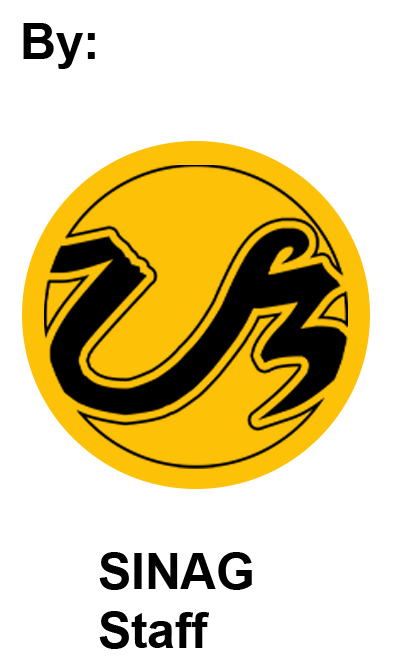
“Digitalizing Martial Law or any other repressive stunts they may think of would not stop the campus press and the youth from calling ‘never again’ and ‘never forget.’ Instead, this will only spark anew the flames of First Quarter Storm and EDSA Revolution be it on the screens or the streets,”
Melanie Feranil, College Editors Guild of the Philippines National Spokesperson
On Facebook’s crackdown on progressive formations
College Editors Guild of the Philippines (CEGP) spokesperson Melanie Feranil condemned Facebook’s rampant censorship of progressive organizations and formations, calling it part of a systematized effort to intimidate activists and prevent dissent.
“The purging of progressive contents and platforms reminds us of the dark times of Marcos Sr.’s Martial Law. Despite being online, how this takedown nonetheless tears into our freedom to dissent and expression gives us no less than the chilling effect of 1972,” said Feranil.
Feranil slammed Facebook after it took down CEGP’s joint statement with UP Solidaridad and Alyansa ng Kabataang Mamamahayag ng PUP against digital censorship and attacks on campus publications, flagging it as “spam activity,” on Monday, January 9.
The earlier statement was released after Facebook warned SINAG and the Manila Collegian that their pages were in danger of being unpublished for “violating community guidelines” in their coverage of tribute programs for revolutionary leader Jose Maria Sison.
Facebook also deleted coverage from The Catalyst — the official student publication of the Polytechnic University of the Philippines.
Meta has also taken down the Facebook pages of several progressive groups such as Anakbayan, Kilusang Mayo Uno, and Bagong Alyansang Makabayan.
In their statement, the press groups pointed out that while Meta’s “arbitrary community standards” have been used to stifle activism, they have done nothing to prevent the spread of disinformation and hate speech on the platform.
“These assaults on publications are outright manifestations of the Marcosian political repression against journalists and students. It is a brazen incursion on the right to express and publish, especially within student institutions that ironically should be safe havens for critical thought and practice,” they said.
Publications under attack
Alongside the censorship, the original statement condemned the outright attacks on college publications after trolls and state agents swarmed SINAG, claiming that it has been infiltrated by the Communist Party of the Philippines and calling the publication “propaganda machinery.”
They said that the attacks were “desperate moves that cast a chilling effect on the exercise of campus press freedom, “ because the Marcoses are afraid that the campus press will expose their disinformation and historical distortion.
“The only acceptable journalism for the administration and this regime is stenography—a transcription-based PR journalism whose writers serve as parrots of their lies and deceptions,” they said.
Ugnayang Tanggol KAPP, the College of Social Science and Philosophy’s academic freedom network, also condemned the attacks on SINAG, saying that these are distractions from the government’s failures, and that they are doomed to fail.
“Whatever they may call journalists and activists, the issues do not change: prices remain high, wages stay low, and the Filipino people are still steeped in poverty while those in power amass mountains of wealth. No amount of intimidation can conceal this worsening crisis,” the network said in a statement.
The CEGP is likewise optimistic, saying that these attempts to intimidate the campus press will only further strengthen it.
“Digitalizing Martial Law or any other repressive stunts they may think of would not stop the campus press and the youth from calling ‘never again’ and ‘never forget.’ Instead, this will only spark anew the flames of First Quarter Storm and EDSA Revolution be it on the screens or the streets,” said Feranil.
#DefendTheCampusPress
Featured image courtesy of Melanie Feranil

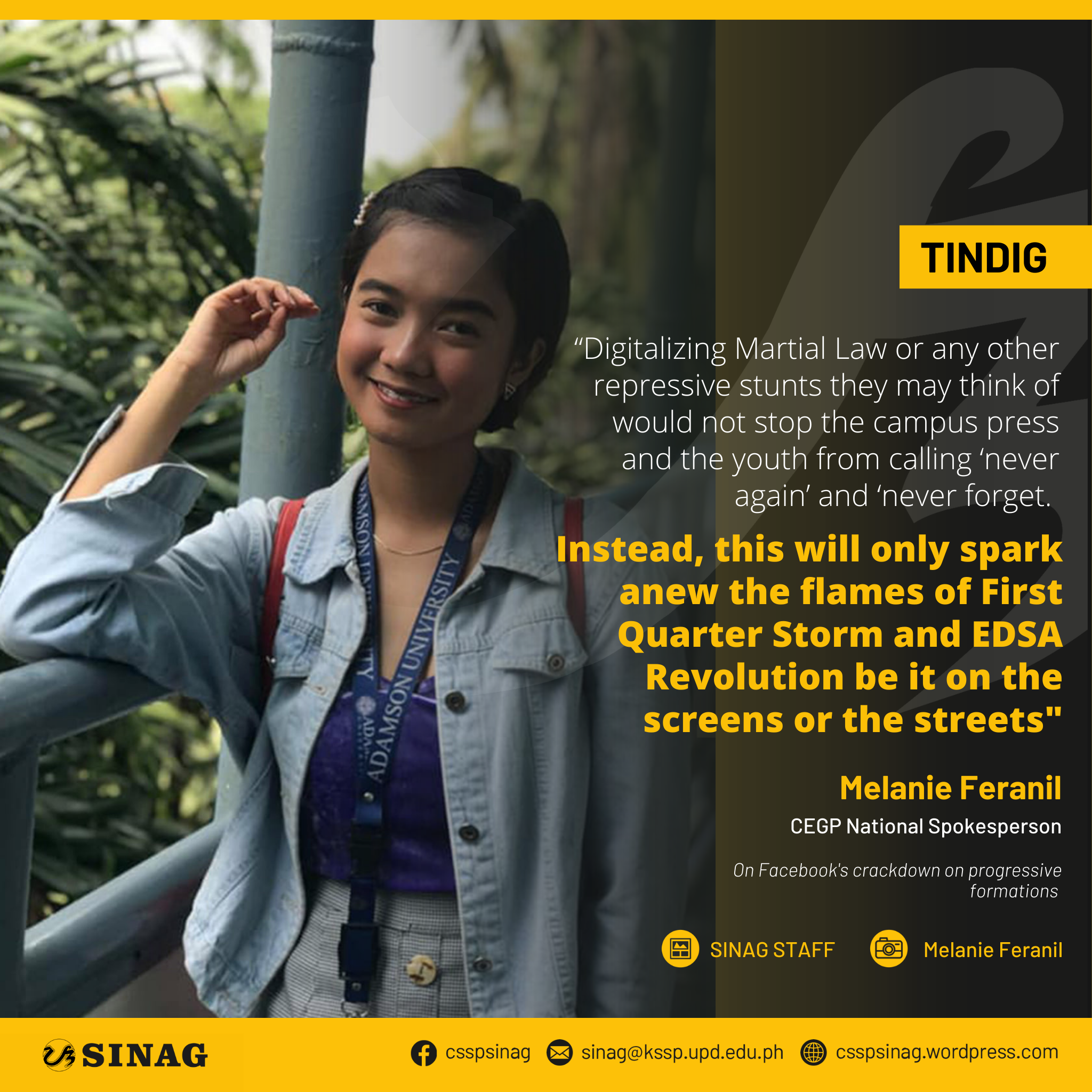

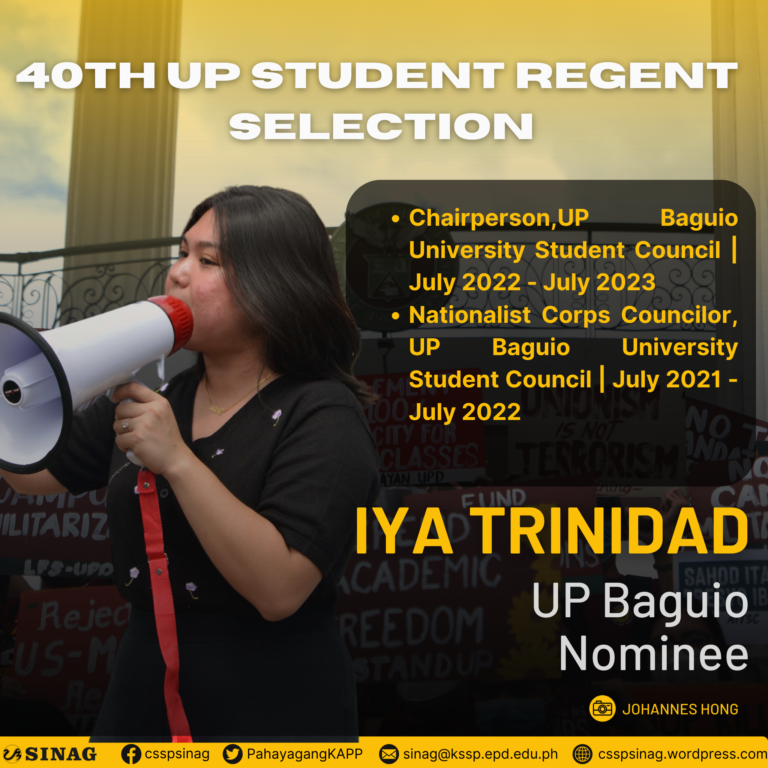

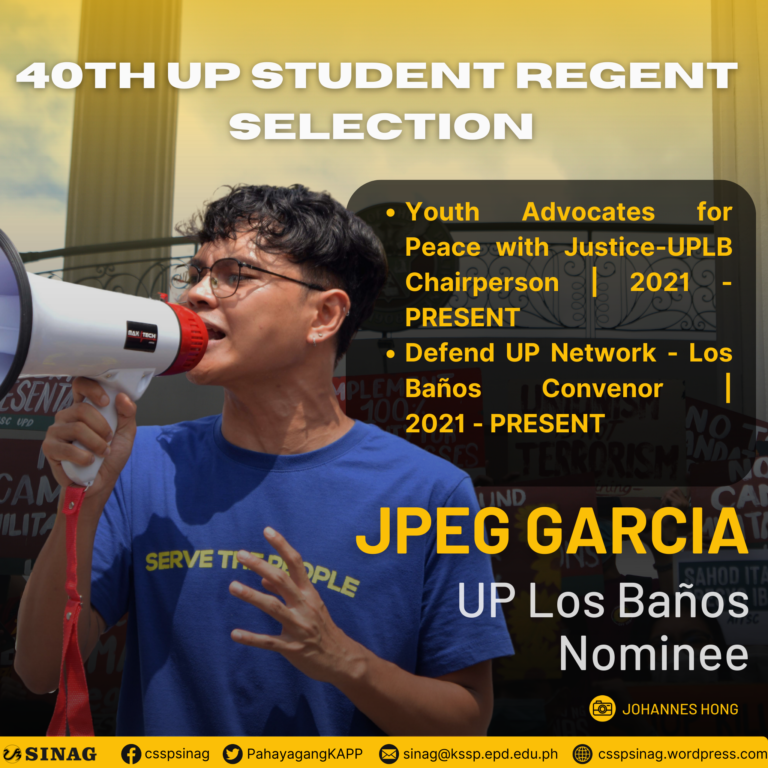

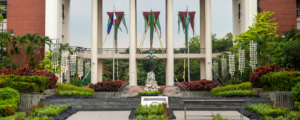
Great content! Super high-quality! Keep it up! http://www.kayswell.com